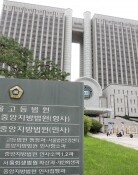Overseas Investment Measures Planned
Overseas Investment Measures Planned
Posted January. 16, 2007 03:01,
Starting from late March for the next three years, taxes will be exempted for capital gains from overseas investment funds. The tax relief will be applied to those who already invested in overseas markets too.
The acquisition cap for foreign real assets will be raised to 3 million dollars from the current 1 million dollars per person.
These are what the Finance Minister Kwon O-kyu said when he announced measures to encourage business to make inroads into overseas markets and to expand overseas investment at a press briefing held on January 15.
Tax exemptions on overseas funds-
The policy package covers various incentives to invest in overseas markets and aims to prevent the won from further strengthening by channeling domestic liquidity to overseas markets.
First and foremost, taxes will be exempted for capital gains from overseas investment funds. The government will not impose taxes even when investors earn profits. Currently, in case of overseas funds, unlike domestic funds, the government imposes a withholding tax as much as 14% of capital gains.
All the overseas funds managed either by Korean or foreign companies will benefit from the exemption. But it does not include off-shore funds. In case of redemption, dividend tax will be imposed for all types of funds.
Starting next month, foreign asset management companies will be allowed to sell commodities and real estate funds in Korea, which had been banned before. Under the new rule, the minimum requirement for foreign asset management firms will be eased from the current 5 trillion won to 1 trillion won in total funds under management.
The maximum purchase of overseas real estate for investment purposes will be raised three-fold to 3 million dollars. For instance, a family of two income-earners will be allowed to hold as much as 6 million dollars worth of real estate in foreign markets.
The government will lift the ceiling by 2009 to enable people to invest freely. The cap was scrapped for holding foreign real assets for residence purpose last year.
The mandatory report to the Bank of Korea on foreign deposits to buy foreign properties either for investment or residence will be eliminated too.
Relaxed regulations on overseas investment-
Some regulations posing a stumbling block to overseas investment of domestic companies and institutions so far will be eased too.
In case of overseas direct investment, businesses will be free from examinations to see how relevant their method is to raise capital or their investment plan and will simply have to report the facts.
Currently banking and insurance companies have to report to the Ministry of Finance and Economy when they invest in non-banking sector. But the process will be also streamlined as they will have to report to a bank.
When financial holding companies establish overseas subsidiaries, the process will be a lot simpler for them too as they will be applied to the same rule applied to general financial companies when they make direct investments. Direct investment will be allowed for pension funds such as National Pension or Government Employee Pension which have been only allowed to make indirect investment in foreign stock markets.
Most market participants welcome this announcement. But some raise concerns that such policy that only focuses on stabilizing exchange rate might lead to capital flight of the rich to evade taxes, and can reap negative side effects stemming from sudden capital outflow.
In regard to the concerns, Minister Kwon said, The government will strengthen measures to prevent capital flight. One of the effects from the new measure will be to channel 10 to 15 billion dollars of domestic capital to foreign markets annually, which will contribute to a stabilized exchange rate.
ddr@donga.com







